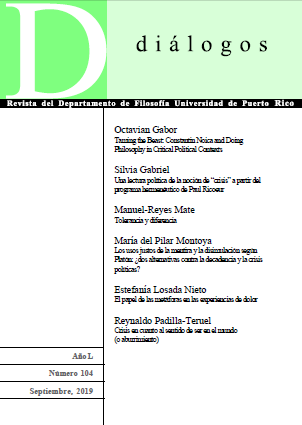Abstract
This paper deals with the uniqueness of the enlightened conception of tolerance. It is inspired by the Spanish medieval experience of the coexistence between the three cultures, but aims at giving account of it in a new way: that is, we are first and foremost equal, before we are different. Despite the undeniable progress this approach has represented for the history of the West, it was not able to withstand the onslaught of nineteenth-century nationalisms. This made clear that the enlightened approach had underestimated the weight of the differences. Such a painful experience gave way to a new approach to tolerance, as represented by Franz Rosenzweig, when he said that "we all have a house, but we are all more than the house".
Downloads
Download data is not yet available.

